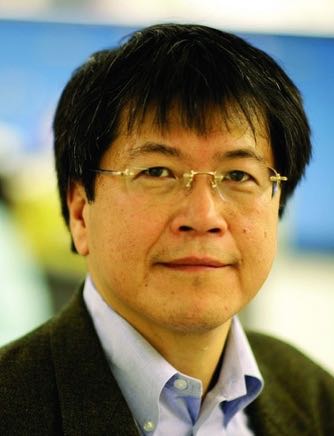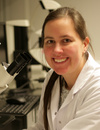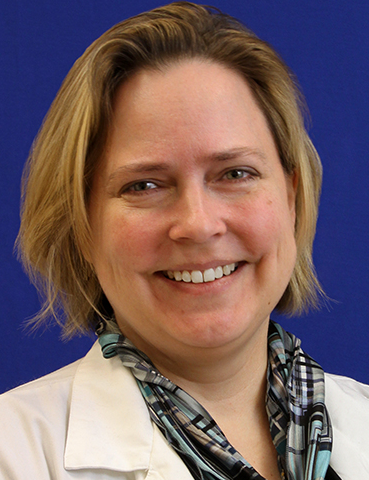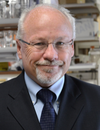| Conferences > Circulating Biomarkers and Extracellular Vesicles Europe 2023 > Keynote Speakers |
| Register | Login |
Hsueh-Chia ChangBayer Professor of Chemical and Biomolecular Engineering, University of Notre Dame, Interim Chief Technology Officer, Aopia Biosciences Over 300 publications, with 18,000 citations and h index of 76. He has confounded a startup Aopia Biosciences in 2020 on purification of extracellular vesicles and currently serves as its interim CTO. |
Andrew J deMelloProfessor of Biochemical Engineering & Institute Chair, ETH Zürich Andrew is currently Professor of Biochemical Engineering in the Department of Chemistry & Applied Biosciences at ETH Zürich, and until October 2020 was Head of the Institute for Chemical and Bioengineering. Prior to his arrival in Zurich, he was Professor of Chemical Nanosciences and Head of the Nanostructured Materials and Devices Section in the Chemistry Department at Imperial College London. His research interests cover a broad range of activities in the broad areas of microfluidics and nanoscale science. Primary specializations include the development of microfluidic devices for high-throughput biological and chemical analysis, ultra-sensitive optical spectroscopies, microfluidic tools for material synthesis and clinical diagnostic technologies. |
An HendrixProfessor, Ghent University An Hendrix is assistant professor at Ghent University and group leader at the Cancer Research Institute Ghent (CRIG). Her team studies small Rab GTPase-mediated release of extracellular vesicles (EV) by tumors, and the isolation and characterization of these nanometer-sized vesicles from liquid biopsies (published in highly ranked journals such as Nature Methods, Gut, JNCI, Cancer Research and Journal of Extracellular Vesicles). As such her team aims to get a deeper insight into the relevant aspects of EV and their biogenesis, and to exploit them for precision oncology. To allow and boost the clinical implementation of EV in daily clinical practice An Hendrix significantly invested in standardization and reproducibility of EV research since this is the foremost important step to initiate biomarker discovery in any type of biofluid for any type of disease. An Hendrix was awarded with a CRIG young investigator proof of concept grant (2017) and the prize of Medical Research 2010-2013 by the Belgian Royal Academies of Medicine (2013). She yearly organizes the EMBO/EMBL practical course on extracellular vesicles (Heidelberg, Germany: https://www.embl.de/training/events/2019/EXO19-01/). An Hendrix contributed to The Massive Online Open Course “Basics of Extracellular Vesicles”. She is founder of the EV-TRACK consortium that aims to increase transparent reporting and reproducibility in EV research (www.evtrack.org) and of the Belgian Society for Extracellular Vesicles that connects Belgian scientists working on EV (www.besev.be). |
Jennifer JonesNIH Stadtman Investigator, Head of Transnational Nanobiology, Laboratory of Pathology, Center for Cancer Research, National Cancer Institute Dr. Jones is NIH Stadtman Investigator, Head of Transnational Nanobiology, Laboratory of Pathology at the Center for Cancer Research, National Cancer Institute, who is developing, refining, and applying advanced high-resolution flow cytometric methods to the characterization of EV subsets. She initiated/cofounded the international ISEV-ISAC-ISTH EV Flow Cytometry Working Group, to support the development of consensus best practices and standardization methods for the field. The ultimate goal of her research is to develop a new class of EV-based biomarkers (and methods for anlyzing those EVs) that will enable adaptve therapeutic strategies, where individual patient treatments are customized based on early responses to treatment. |
David JunckerProfessor and Chair, McGill University David Juncker stayed as a visiting scientist at the National Metrology Institute of Japan in Tsukuba from 1997-98. He conducted his PhD research at the IBM Zurich Research Laboratory from 1999-2002. He then pursued his studies as a Post-doc first at IBM Zurich until 2004, and then one year at the Swiss Federal Institute of Technology in Zurich (ETH). David started as an assistant professor in the Biomedical Engineering Department of McGill University in 2005, was promoted to associate professor with tenure in 2011, and became a full professor in 2016. As of early 2018, David serves as departmental chair of the Biomedical Engineering Department at McGill University. |
D. Michiel PegtelAssociate Professor, Amsterdam University Medical Center Michiel Pegtel conducted practical training as an undergraduate student at the National Cancer Institute (Bethesda,USA) and obtained a PhD in Immunology at Tufts University Medical School (Boston,USA) working on Epstein virus-induced cancers in collaboration with the MIT/Harvard Broad Institute (Cambridge,USA). After postdoctoral training at the Netherlands Cancer Institute (Amsterdam, Netherlands) working on tumor cell biology, he started the ERG at the Amsterdam UMC working on virus-modified EVs. Michiel was recognized by Clarivate in 2021 as one of the world’s highly cited researchers. Current members of his group investigate i) the molecular dynamics of EV biogenesis and release ii) small RNA sorting into EVs and iii) exploiting exosomes for drug delivery. For his early discovery of functional miRNA transfer via exosomes Michiel was awarded the Beijerinck Virology Premium from the Royal Dutch Academy of Sciences. He is an inventor of multiple patents and cofounder of ExBiome a molecular diagnostics start-up aimed at developing liquid biopsy tests focusing on hematological cancers. |
Steve SoperFoundation Distinguished Professor, Director, Center of BioModular Multi-Scale System for Precision Medicine, The University of Kansas Prof. Soper is currently a Foundation Distinguished Professor in Chemistry and Mechanical Engineering at the University of Kansas, Lawrence. Prof. Soper also holds an appointment at Ulsan National Institute of Science and Technology in Ulsan, South Korea, where he is a World Class University Professor. He is also serving as a Science Advisor for a number of major worldwide companies. Prof. Soper is currently on the Editorial Board for Scientific Reports and Journal of Micro- and Nanosystems. |




